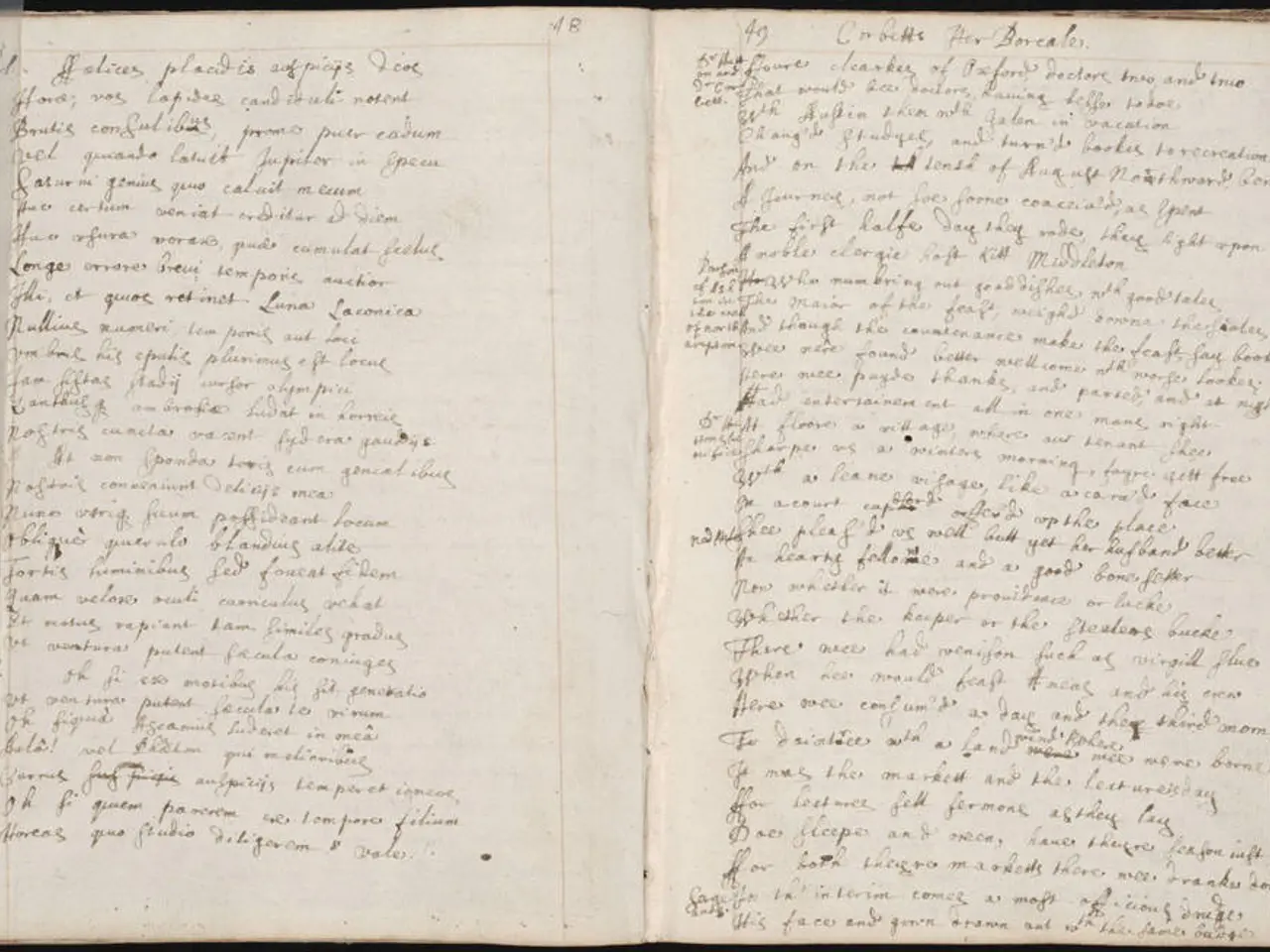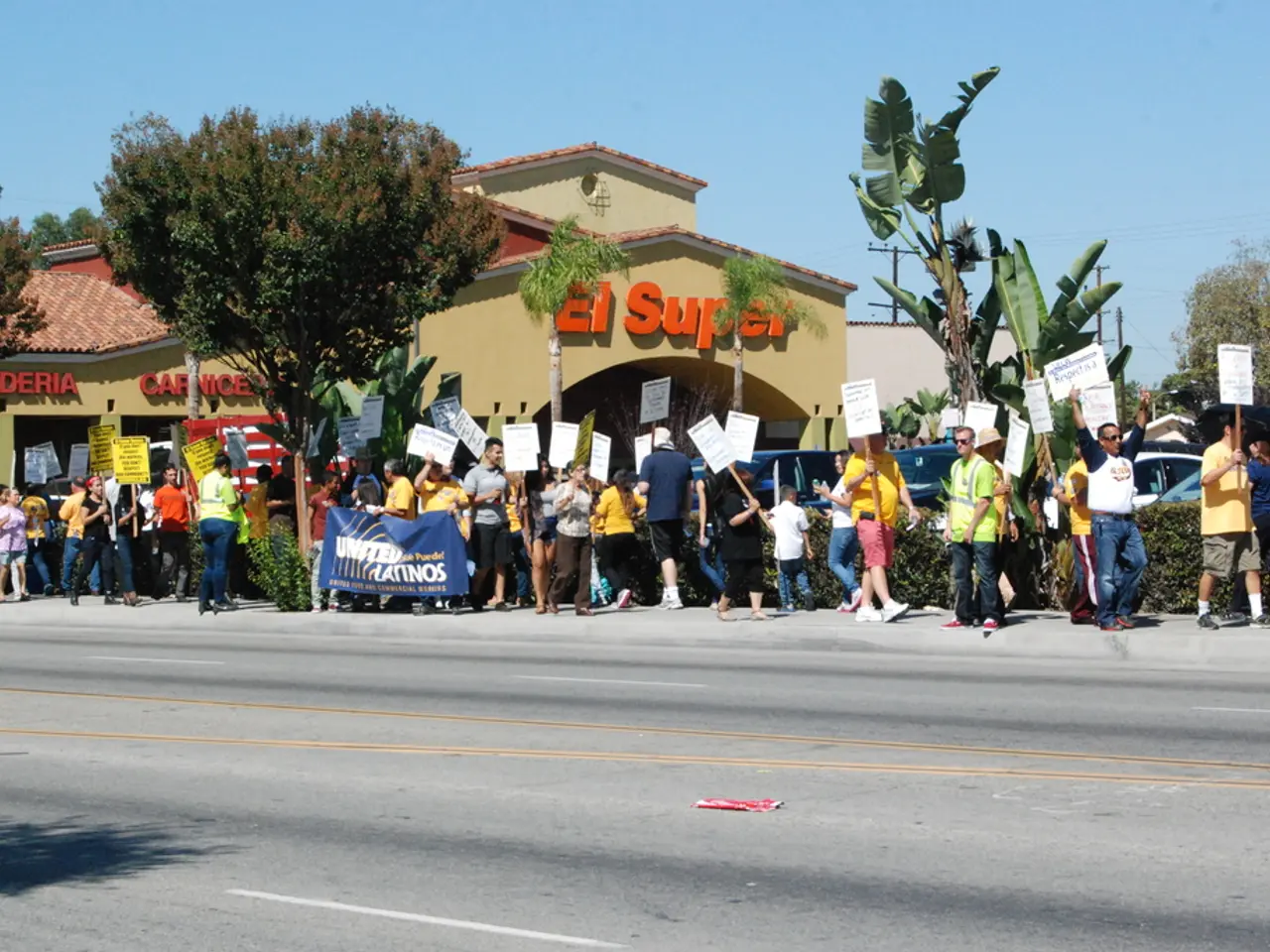No traces of plagiarism discovered in Brosius-Gersdorf's work, according to the report.
In a surprising turn of events, the election of three judges for the German Federal Constitutional Court has been postponed, marking the first such disruption in 76 years. The cause of this delay is a cloud hanging over the nominee, lawyer Frauke Brosius-Gersdorf, due to plagiarism allegations.
The controversy began when Stefan Weber, a self-proclaimed plagiarism hunter, brought forward charges against Brosius-Gersdorf. However, an investigation conducted by the law firm Quaas and Partners could not find any substantial evidence to support these allegations. The brief assessment concluded that there was no room for a plagiarism charge against Brosius-Gersdorf, yet the question of plagiarism remains unresolved as of mid-July 2025.
The political landscape has been shaken by this controversy, with Chancellor Friedrich Merz and other political leaders viewing it as a political dispute rather than a formal crisis. However, the situation has led to heightened political tensions, particularly within the coalition government, as the CDU, CSU, and SPD grapple with the dilemma of jointly electing judges without continuing the current stalemate.
CDU MP Gitta Connemann has suggested that the decision on Brosius-Gersdorf's candidacy should be made in conversations between the coalition factions. Meanwhile, CDU Bundestag MP Saskia Ludwig has placed the blame for the stalemate situation on SPD faction leader Matthias Miersch, stating that he should have withdrawn Brosius-Gersdorf's candidacy.
Brosius-Gersdorf's nomination has faced opposition from various quarters. Some members of parliament have received numerous emails warning against her election before the planned vote. Bamberg Archbishop Herwig Gössl has also offered a personal talk to Brosius-Gersdorf to clear up misunderstandings following her criticism of a sermon he delivered.
In response to the criticism, Brosius-Gersdorf expressed concern about the potential consequences of successful campaigns against her, stating that they could negatively impact the country and democracy. She also emphasized that Gössl's sermon, which referred to her as an "abyss of intolerance and contempt for people", was particularly disturbing.
The election of two female judges and one male judge for Karlsruhe was unexpectedly removed from the agenda of the Bundestag, adding to the uncertainty surrounding the situation. It is unclear when the election will be rescheduled, but political leaders have acknowledged the need for a timely decision in the future.
As the investigation into the plagiarism allegations against Frauke Brosius-Gersdorf continues, the German political landscape remains divided, with the fate of the nominee hanging in the balance. The resolution of this matter will likely have significant implications for the German Federal Constitutional Court and the political landscape of the country.
[1] "Plagiarism Allegations against German Constitutional Court Nominee: A Political Storm" - The Guardian, July 15, 2025 [2] "German Constitutional Court Nominee's Election Postponed Amid Plagiarism Allegations" - Deutsche Welle, July 16, 2025 [3] "Germany's Constitutional Court Nominee Election Delayed: A Political Crisis or Dispute?" - BBC News, July 17, 2025 [4] "Brosius-Gersdorf's Plagiarism Allegations: The Ongoing Controversy" - Der Spiegel, July 20, 2025 [5] "The Plagiarism Allegations against Frauke Brosius-Gersdorf: A Timeline" - Die Zeit, July 22, 2025
- Amidst the political turmoil, the ongoing debate surrounding the plagiarism allegations against lawyer Frauke Brosius-Gersdorf for the German Federal Constitutional Court falls under the category of policy-and-legislation, as this controversy has shaken the political landscape and impacted the future of the court's judges.
- The general news headlines have increasingly focused on the delay in the election of judges for the German Federal Constitutional Court, with politics playing a significant role in the heated discussions surrounding plagiarism allegations against nominee Frauke Brosius-Gersdorf, making it a pressing matter of public interest.





